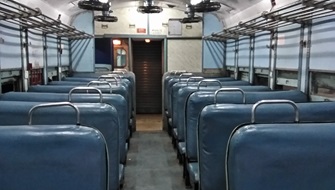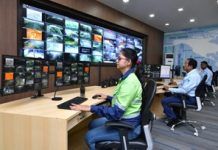Indian Railways’ plans to introduce facial recognition-enabled CCTV cameras inside train coaches across India is a big departure from the right to privacy, says the digital rights organisation, Internet Freedom Foundation (IFF).
A tender floated by the Centre for Railway Information Systems, a functionary of the Ministry of Railways, has invited technology providers for the installation of facial recognition-enabled CCTV cameras inside train coaches across India, and the use of face-cropping tools and face-matching servers to surveil and identify individuals to ‘curb crime’.
“We believe that this plan raises a number of concerns about data privacy of individuals, which will not be remedied even after the enactment of a data protection legislation,” IFF said.
According to IFF, the plan also fails the foundation Puttaswamy test laid down by the Supreme Court, lacks legal safeguards against misuse of vulnerable facial data, and might even prove unsuccessful in meeting the stated objective and add resource burdens for authorities.
The Centre for Railway Information Systems, a functionary of the Ministry of Railways, recently floated a tender for the installation of a cumulative 3.3 Lakh facial recognition-enabled CCTV cameras inside 44,038 train coaches across India. There are plans to equip 38,255 coaches with 8 cameras, 2,744 coaches with 5 cameras, 2,079 coaches with 4 cameras, and 960 coaches with 6 cameras. Of these, the Central Railways division will have a total of 3,018 coaches under CCTV surveillance, Western Railways 3,408 coaches, and East Central Railways 2,533 coaches.
“The CCTV surveillance systems will be enabled with ‘video analytics’ and facial recognition technology and apart from the coaches, 4 will be planted at exit/entry points of the train. A face image cropping tool built into the 4 entry/exit CCTV cameras will identify faces of passengers from the camera’s live feed and send the metadata to a central ‘face matching server’ in real time. This ecosystem will collect and store facial data of all passengers entering and exiting a train, which include adult and child passengers alike,” IFF said.
“We believe that this plan raises a number of concerns about privacy, surveillance, and data security. Collecting, processing, and storing sensitive facial data of adults and children without their explicit consent at such a large scale violates their right to privacy. This affects not only passengers, but everyone who enters a train coach, including local vendors and coolies who frequently go in and out of trains, families of passengers, railway staff, sanitation workers, and so on,” IFF noted. The group also wrote to the Centre for Railway Information System and the Ministry of Railways detailing their concerns.








